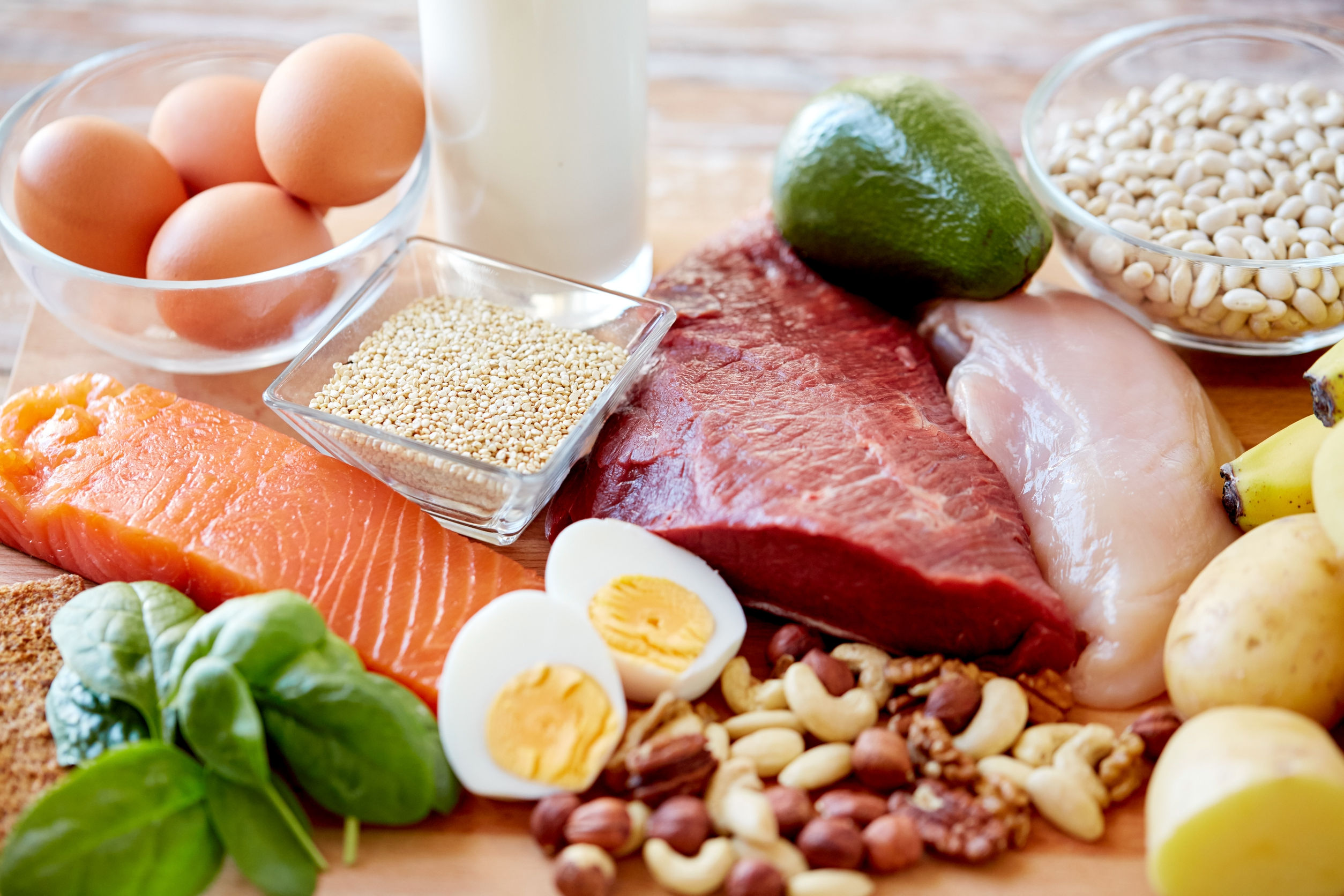Vitamins are essential nutrients that help your body function at its best. They play an important role in regulating bodily functions such as your metabolism, digestion and immune system. A vitamin deficiency could result in health problems, so it’s important that you get your daily dose of these indispensable chemical compounds.
Although vitamins are available in supplement form, the vitamins found in supplements are not as easily processed by the body. The best way to meet your daily vitamin intake needs is by eating a nutrient-dense diet. There are essentially two types of vitamins: fat-soluble and water-soluble. Fat-soluble vitamins — vitamins A, D, E and K — are stored in the body’s fatty tissues. Water-soluble vitamins — the B vitamins, including thiamine, niacin, riboflavin and folic acid — must be replenished regularly because they are excreted in urine.
Here are the 13 essential vitamins your body needs to grow, develop and stay healthy, complete with a guide to which foods contain them.
Vitamin A
Vitamin A is essential for growth and cell development, as well as healthy skin, hair, bones and teeth. It is found in salmon and other cold-water fish, egg yolks and fortified dairy products.
Vitamin C
Vitamin C supports immunity, promotes wound healing, helps your body absorb iron and acts as a key antioxidant. It is found in citrus fruits, melons, berries, peppers, broccoli and potatoes.
Vitamin D
Vitamin D aids in the absorption of calcium and helps keep your bones strong. Your body naturally produces vitamin D when it’s exposed to the sun, but it is also found in fortified milk, butter, egg yolk, fish and fish-liver oil.
Vitamin E
Vitamin E is an important antioxidant that helps maintain muscles and red blood cells. It is found in eggs, vegetable oils, nuts, seeds and fortified cereals.
Vitamin K
Vitamin K is essential for proper blood clotting. Get your vitamin K from spinach, broccoli, green leafy vegetables and liver.
Thiamine (Vitamin B1)
Thiamine (Vitamin B1) plays an important role in regulating your metabolism. Thiamine also helps maintain proper nerve function and normal digestion. A diet that includes pork, legumes, nuts, seeds, grains and fortified cereals will help you meet your body’s vitamin B1 needs.
Riboflavin (Vitamin B2)
Riboflavin (Vitamin B2) supports normal vision and healthy skin, aids in adrenal function and also contributes to a healthy metabolism. Riboflavin is found in lean meat, poultry, dairy products, raw mushrooms, grains, fortified cereals and soy/rice beverages.
Niacin (Vitamin B3)
Niacin (Vitamin B3) promotes normal growth, helps lower cholesterol levels and supports your metabolism. Eat lean meats, poultry, seafood, milk, eggs, legumes, fortified bread and cereals to get your allowance of vitamin B3.
Pantothenic Acid (Vitamin B5)
Pantothenic Acid (Vitamin B5) normalizes blood sugar levels and synthesizes cholesterol, hemoglobin and hormones. Vitamin B5 is found in almost all foods.
Pyridoxine (Vitamin B6)
Pyridoxine (Vitamin B6) promotes the metabolism of both proteins and carbohydrates, helping your body to release energy. It also supports proper nerve function. Vitamin B6 is found in meat, fish, poultry, bananas, green leafy vegetables, potatoes, grains, cereals and soybeans.
Biotin (Vitamin B7)
Biotin (Vitamin B7) is also essential to regulating your metabolism and can be found in egg yolks, soybeans, whole grains, nuts and yeast.
Folate, folic Acid (Vitamin B9)
Folate, folic Acid (Vitamin B9) is an essential vitamin for pregnant women, as it helps prevent birth defects. Vitamin B9 is also necessary to the production of DNA, RNA and red blood cells. Liver, yeast, leafy green veggies, asparagus, orange juice, avocados, legumes and fortified flour are all great sources of folic acid.
Cobalamin (Vitamin B12)
Cobalamin (Vitamin B12) helps your body to produce healthy red blood cells, RNA, DNA and myelin (a component in nerve fibers). Vitamin B12 is found in all animal products.
The best way to get your vitamins is by eating a balanced diet. Some people aren’t able to get the recommended daily allowance (RDA) through food alone and may need to take supplements. Consult your healthcare provider or a registered dietitian. They can help evaluate your dietary needs and assess whether or not you should take a multivitamin or other supplement.





